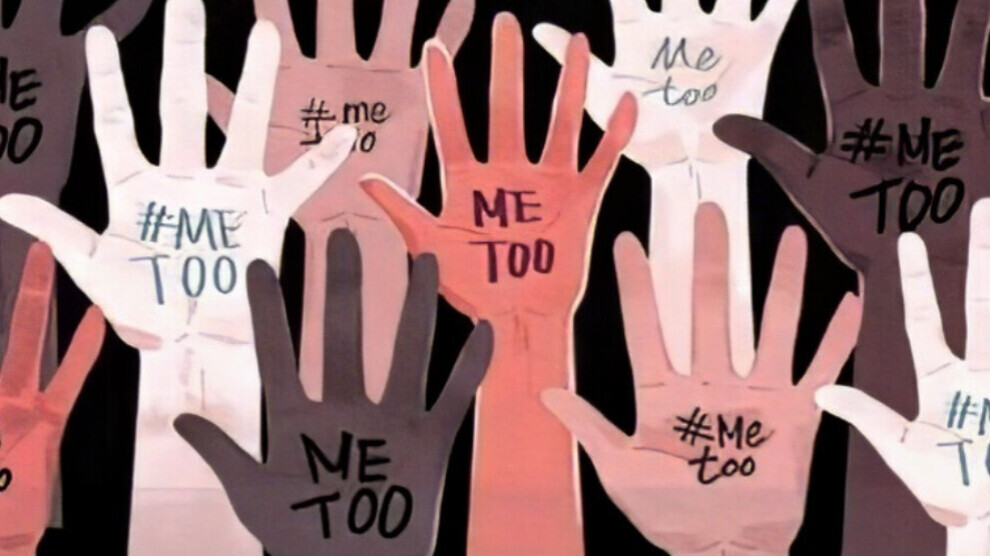From the Mirabal sisters to “Me Too”:the journey Against Patriarchy
Violence against women is a deeply rooted structural issue. The global MeToo movement and feminist activism in the Middle East expose it, promoting true liberation through rebuilding society on inclusive, just, and comprehensive foundations.

Farida Rabo
News Center — Violence against women is not merely an individual problem but a structural crisis deeply rooted in human history. The assassination of the Mirabal sisters by state violence stands as stark evidence that patriarchy is reproduced not only through social customs and traditions but also through political, institutional, and legal mechanisms that perpetuate discrimination and fuel violence.
On November 25, this day is not only seen as an occasion to denounce violence but also as a political marker revealing the civilizational structures in which violence is framed as a comprehensive problem. Although the movement traces its beginnings to 2006–2007 within artistic circles, it quickly gained global traction with the launch of the “MeToo” campaign, aiming to expose all forms of abuse against women. This article highlights the interconnectedness of women’s struggles worldwide, from the MeToo movement to activism in the Middle East, emphasizing that the roots of women’s oppression originate from the same patriarchal mentality.
Violence against women cannot be reduced to isolated incidents in modern society; it stems from a deeply entrenched system of authority established throughout human civilization. Male dominance has historically manifested through state formation, property regulation, family institution codification, and the imposition of religious and legal codes. By controlling women’s labor, identity, and social existence, patriarchy became a foundational principle of societal structures. Violence, therefore, is not a transient outcome but a self-sustaining systemic framework.
Through unifying women’s experiences, the MeToo campaign exposed the cultural and institutional foundations of patriarchal systems, revealing how normalized violence had become even in spheres presumed to be free, such as arts, media, and academia. Yet public disclosure was only the first step; the movement initiated momentum for change but did not yet provide an alternative societal model. It is imperative that the global feminist movement evolves toward a deeper conception of freedom, transcending partial remedies and establishing a comprehensive vision.
Women’s freedom cannot be reduced to legal equality that merely removes some historical constraints imposed by patriarchy. It requires a holistic vision, positioning freedom as a fundamental principle across social ethics, political organization, economic life, and cultural production. In this sense, women’s freedom is not just a “demand for rights” but a model for reconstructing society on different foundations. Eliminating violence requires dismantling the patriarchal system that shaped civilization and instituting a radical alternative for genuine transformation.
In recent years, feminist movements in the Middle East have not only organized public protests but have also fought through building alternative civil institutions to combat violence. Women’s councils, self-protection initiatives, co-leadership structures, women’s academies, and cultural production unions were established to provide practical solutions beyond the patriarchal state model. These movements answer the question, “What can be changed?”, expanding the impact of MeToo and opening pathways for deeper societal transformation.
Male-dominated aesthetics historically objectified women’s bodies while denying the value of their work. Traditional art’s failure to confront forms of violence demonstrates how patriarchy entrenched its aesthetic system through unethical individual practices. In contrast, new aesthetics emerged under women’s liberation models, emphasizing collective production, social sensitivity, ethical and political responsibility, and bodily autonomy. Cinema, literature, and performative practices by Middle Eastern women not only expose violence but also pave the way for constructing an alternative aesthetic and social world.
On November 25, the historical roots of violence against women are revealed, alongside the societal model required to overcome it. While the MeToo campaign has unified women’s voices globally, true transformation is possible only when freedom becomes a foundational principle in societal reconstruction. A political and ethical approach grounded in women’s freedom does not merely dismantle male-dominated civilization but initiates a broader and more liberated societal framework. Thus, November 25 serves as both a day of confrontation and a starting point for a new social horizon.
